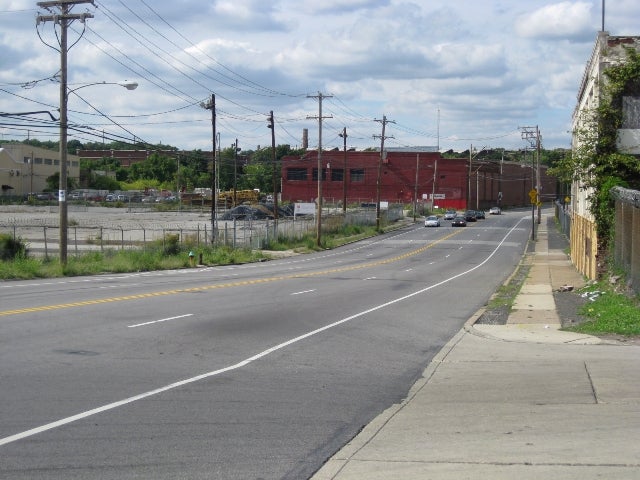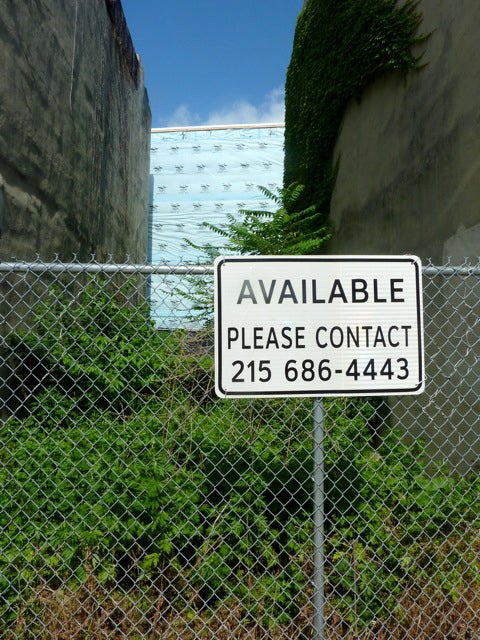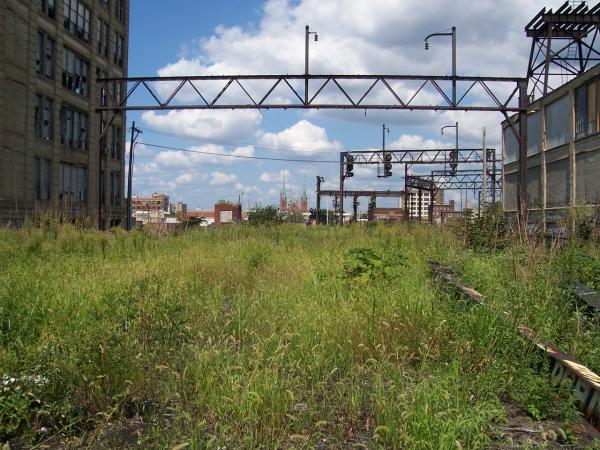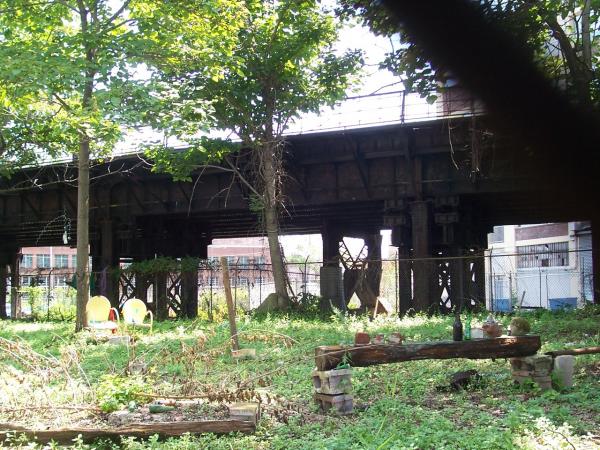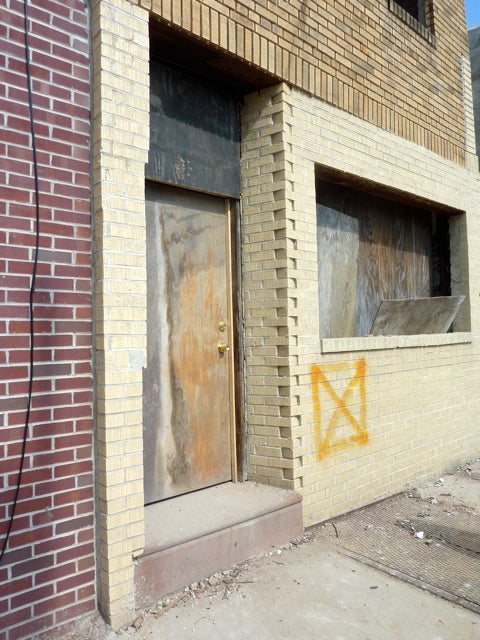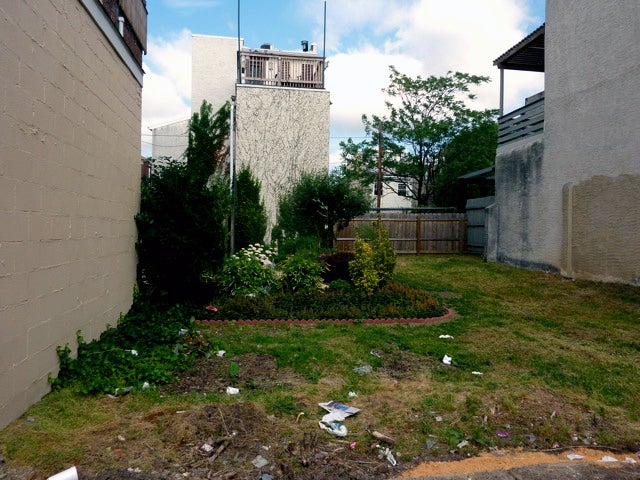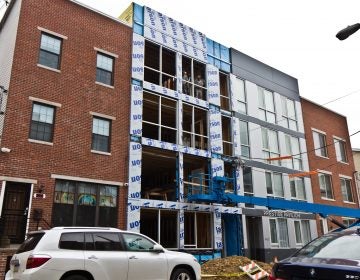Vacancy victories are rare, but city says reform is coming
For experienced and savvy developers like Asociación Puertorriqueños en Marcha, navigating Philadelphia’s bewildering system for acquiring and developing vacant land is a tedious chore, but doable.
For developers who are not as capable – or connected – the time and expense it takes to get title to abandoned property in Philadelphia can break a deal.
It is an old aggravation. But with development scarce in the post-bubble world, City Hall has shown a renewed interest in making it easier for interested builders to get vacant land.
“We didn’t create the problem, but the Nutter administration is committed to solving it,” said Managing Director Richard Negrin.
Looking closely over Nutter’s back is City Council, where some members feel the mayor has not focused nearly enough on neighborhood quality of life concerns such as blight and vacant land.
To call attention to those issues, Councilman Darrell Clarke last week hosted a well-attended forum at Temple University that featured leading local and national experts on the issues of vacant land and redevelopment.
Following the forum, Clarke introduced legislation in City Council that would give the city powers to seize the assets of property owners who failed to repair blighted properties.
Clarke, whose 5th District covers a swath that arcs from Center City to Fishtown, did so, he said, “because he didn’t get a sense that these things were being prioritized at a level that myself and other council members were comfortable with.”
It likely will take sustained, high-level attention for the city to make any significant progress on vacant land management. Consider:
- The city has no real confidence in its count of vacant properties, which includes both empty lots and abandoned buildings. There are six separate city vacancy databases, Negrin said, and the databases conflict badly. Depending on which department is doing the counting, the city could have as few as 40,000 vacant properties, or as many as 60,000.
- Of those vacant parcels, about 75 percent are owned by individuals or private businesses, according to the city’s Redevelopment Authority. In many cases, the owner is dead, or a defunct company. Getting title to those parcels requires expensive and time-consuming processes such as eminent domain or sheriff auctions.
- The land that is publicly owned – about 25 percent – is divided between no fewer than five city departments and agencies, each of which has different processes and different priorities for disposing of properties.
Given those and other flaws, it is little wonder that most private developers and Community Development Corporations consider Philadelphia’s management of vacant property to be one of the biggest brakes on economic growth in the city.
“The people who know the system can get property out of it, especially if they have the relationships with the people running it. But overall the system doesn’t work. Overall, it’s broken. It can take six years to assemble the properties for a single development,” said Rick Sauer, executive director of the Philadelphia Association of Community Development Corporations.
One big fix favored by many non-profit developers and policy experts is the creation of a land bank, a central repository for all city-owned land, with one list of available parcels and a single process for acquiring those properties.
“Without a single entity responsible for the property issue in its totality it’s just about impossible to set up the kind of systems, disposition processes, maintenance and so forth that is needed to make this work,” said Alan Mallach, a senior fellow at the Brookings Institution and the Center for Community Progress who spoke at Clarke’s forum last week.
An interactive graphic showing a heat map of the city’s vacancy problem. Story continues below…
Another approach that could accelerate the redevelopment of privately held vacant land is to aggressively pursue the thousands of abandoned parcels which have delinquent property taxes.
In some cities, such as Flint, MI, tax delinquent properties are automatically land-banked and thus more quickly made available for potential redevelopment. In Philadelphia, though, tax delinquent properties must be offered for sale to the general public at a sheriff auction before the city can take title. The process is slow, but other cities have used it effectively to transfer ownership of vacant land.
“Tax collection sales have been used as a vehicle for property acquisition in a lot of cities,” said John Kromer, a senior consultant at the Fels Institute of Government. “That really didn’t happen in Philadelphia, where for decades sheriff sale was just viewed as a tax collection opportunity rather than as a way to acquire properties.”
The Nutter administration is open both to the notion of a landbank and an overhaul of its property tax delinquency system. But Negrin said the administration’s immediate focus was on more basic concerns, like ensuring that city property records are accurate.
That is a huge job in and of itself.
The city’s core address management system, which was built by the Board of Revision of Taxes, is rife with errors. Complicating matters further are the separate property records maintained by other departments: water use, for instance, or a history of code violations kept by the Department of Licenses and Inspections.
Frequently, the data in these separate databases contradict one another, Negrin said.
“Some folks think they have a great list, but their list is different than others who also think they have a great list,” Negrin said.
To address that, the Nutter administration plans to form a property office – based in the Finance Department – to reconcile the conflicts. Ultimately, Negrin said, the city hopes to create a master property database, a single massive data set that all departments would have access to.
Clarke would like to see the administration take immediate action, instead of taking months or even years to get the city’s record-keeping in order. But the Nutter administration contends that getting good data is a prerequisite to developing a citywide vacant land strategy.
“Where is water being used? Where are people paying their taxes? Where are people paying or not paying their gas bill? You can create an electronic picture of the world that’s much more accurate than what we have now,” said John Carpenter, deputy executive director of the Redevelopment Authority. “We think it really starts with better data. We know we don’t have it right now but we’re moving in that direction very quickly.”
It is not just a matter of getting the databases right. The RDA also plans to release a study quantifying the costs – in diminished property values, taxes and missed development opportunities – created by the city’s vacant properties.
All of this, the Nutter administration says, is groundwork that must be laid before the city can settle on a coherent strategy for making the most of its oversupply of vacant land. It’s an approach that at least some community development experts endorse, however exasperating and slow it might be for council members and the residents they represent.
“If this city is going to have a revitalization strategy worth of the name, good information is critical,” Mallach said.
In the meantime the city has taken more modest steps to encourage development of vacant land, such as putting much of its inventory of publicly owned vacant land online and hiring realtors to sell some of the more marketable properties.
“The fact that this represents a radical change in policy is indicative of where we’ve been over the years,” Kromer said.
Contact the reporter at pkerkstra@planphilly.com
WHYY is your source for fact-based, in-depth journalism and information. As a nonprofit organization, we rely on financial support from readers like you. Please give today.



